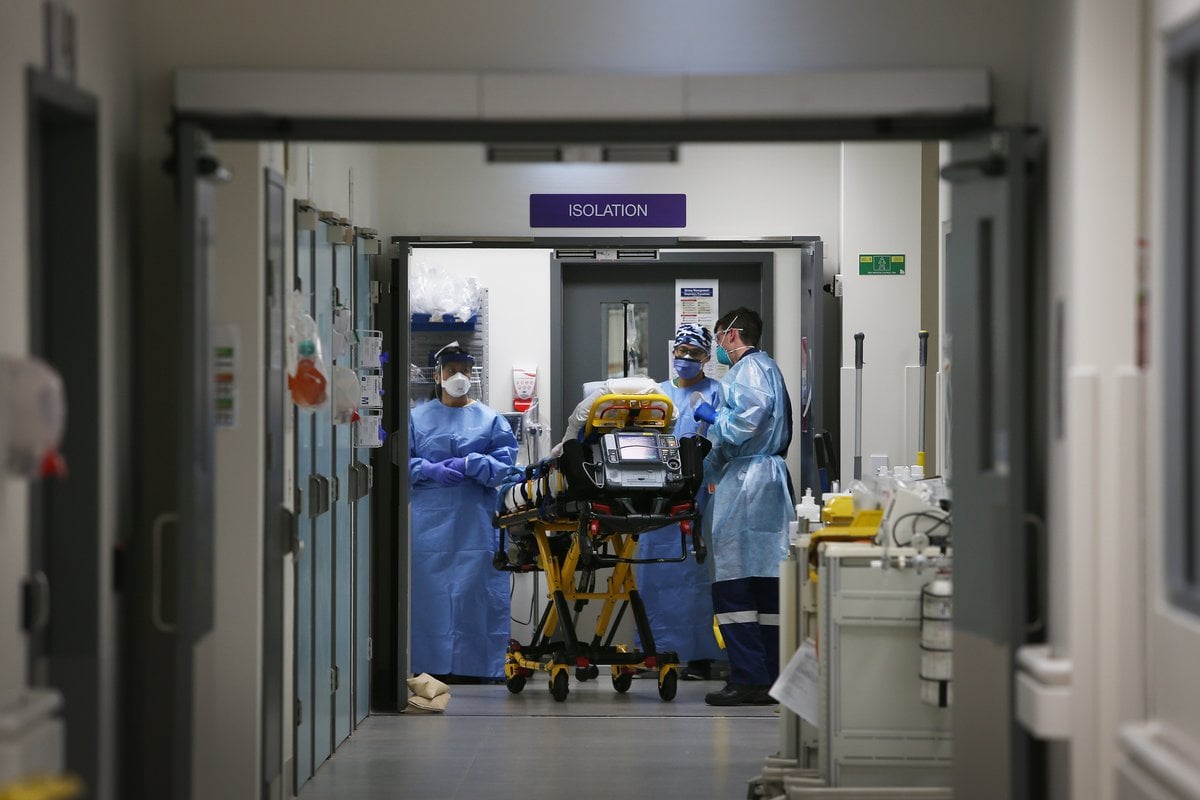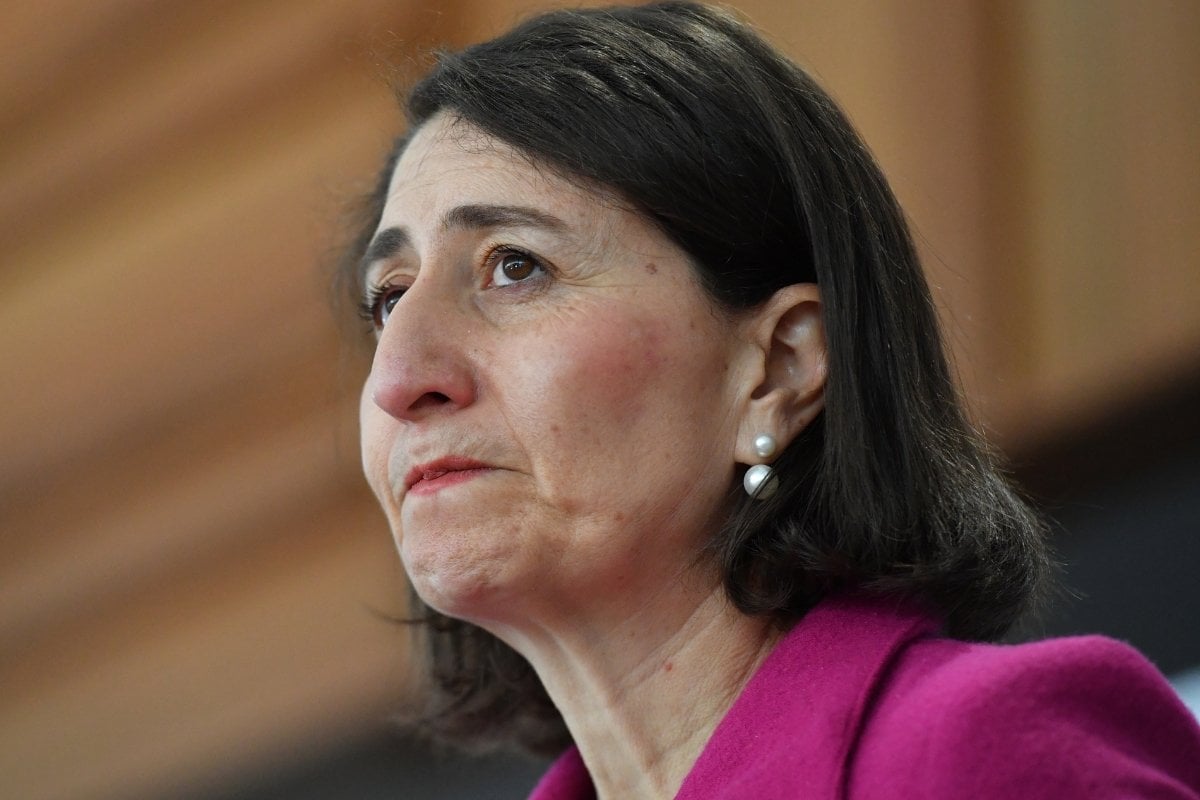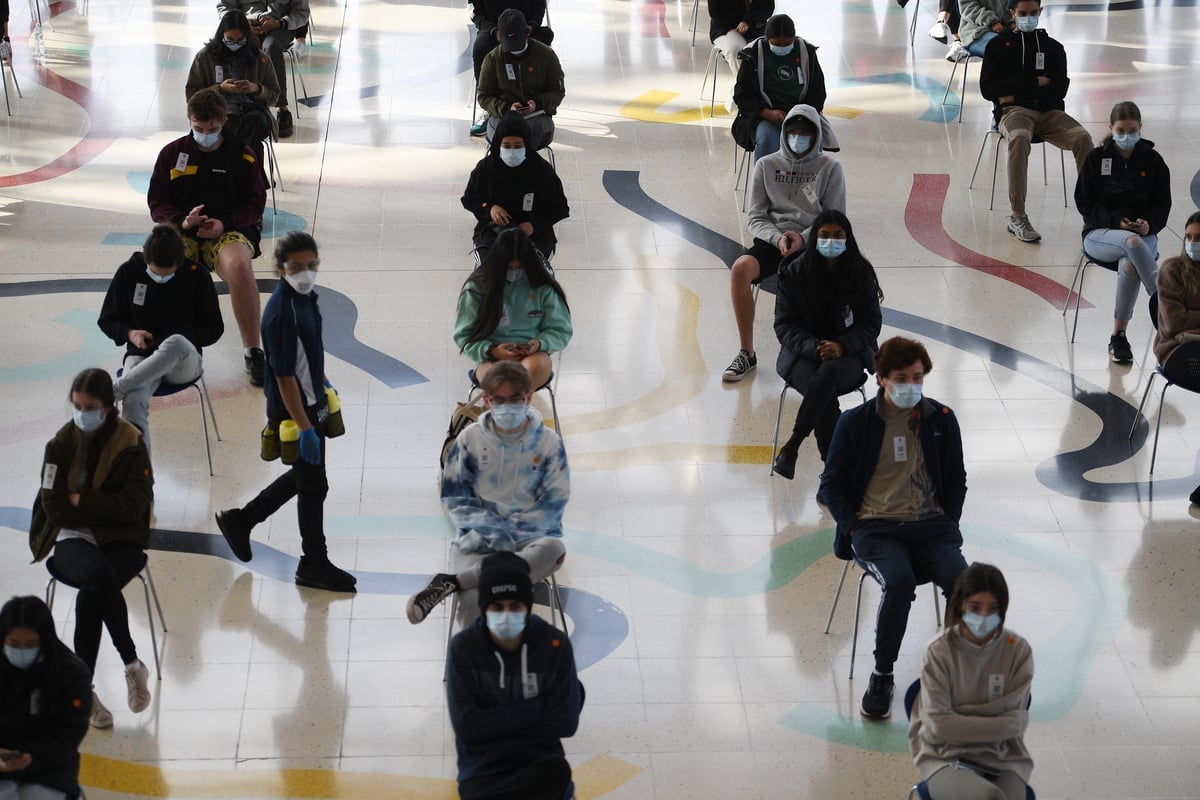
Nearly nine weeks after Sydney's deadly COVID-19 outbreak began, NSW now has more than 8,000 active cases that have been locally transmitted.
It's leaked into other states and territories and even seeped into New Zealand, who is now in the midst of their own lockdown thanks to a case that originated in Sydney.
As NSW Premier Gladys Berejiklian has repeated multiple times this past week, the worst is yet to come. According to some medical experts, NSW could be seeing more than 2,000 cases a day within a month if we continue in this direction.
It comes as the NSW Government has conceded that it will be near impossible to eliminate the Delta strain completely. So, the focus is on the vaccination rollout. At the moment, 55 per cent of NSW residents have had their first dose of the vaccine.
Listen: What happens if we can't contain COVID-19? Post continues below.
Epidemiologist Professor Mary Louise McLaws has explained to Mamamia's daily news podcast The Quicky exactly what NSW's roadmap out of lockdown should look like.
Is 60 per cent a good goal of vaccination?
Gladys Berejiklian has said the state needs at least 60 per cent of the eligible population to be vaccinated before some restrictions can be eased.
However, Professor McLaws tells Mamamia: "That was never a good goal. It was a political statement. It wasn't based on any science.
"In fact, the Doherty Institute model that came out saying 70 per cent and 80 per cent of adults [need to be vaccinated] is faulty because the transmissibility of Delta is hugely high.




Top Comments